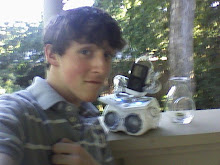


In the world of live theater, theatre technicians (or techies, as they are affectionately referred to) often go unnoticed by the casual audience member. Generally, they remain completely unseen during shows and it’s easy to forget that they’re hard at work backstage the entire time. They have, however, very difficult and demanding jobs that require lots of technical expertise and mathematical skills. Techies are artists because they are a vital part of the art of theatre; they use math because they deal with technology and equipment that requires its application.
In set construction, techies use mathematics to first design and plan the set and then build it. They create sketches that must be in scale with the final product, and later they measure and cut materials such as lumber and canvas.
Lighting designers work with computer programs that require precise timing and proper location of the lights. They must use math to figure out where to train the light and how long it should be on.
Riggers, or flymen, operate the theater’s rigging. By putting weights on one end of the rigging, flymen balance the weight of the theater’s set pieces and curtains and keep them from crashing. These set pieces and curtains are sometimes stored in the theater’s fly space, and without the weights could easily crash and injure innocent performers.
In the sound booth, math is used to operate complicated computer programs that find sounds and insert them into scenes at their proper cues. It also helps when operating the ever-complicated sound board.
Finally, costume designers use math constantly. They measure and cut pieces of cloth and other materials, fit actors and determine their sizes so they know precisely how big to make their costumes, and even use math to purchase costume pieces. Clearly, theatre technicians are artists who use math every day!



